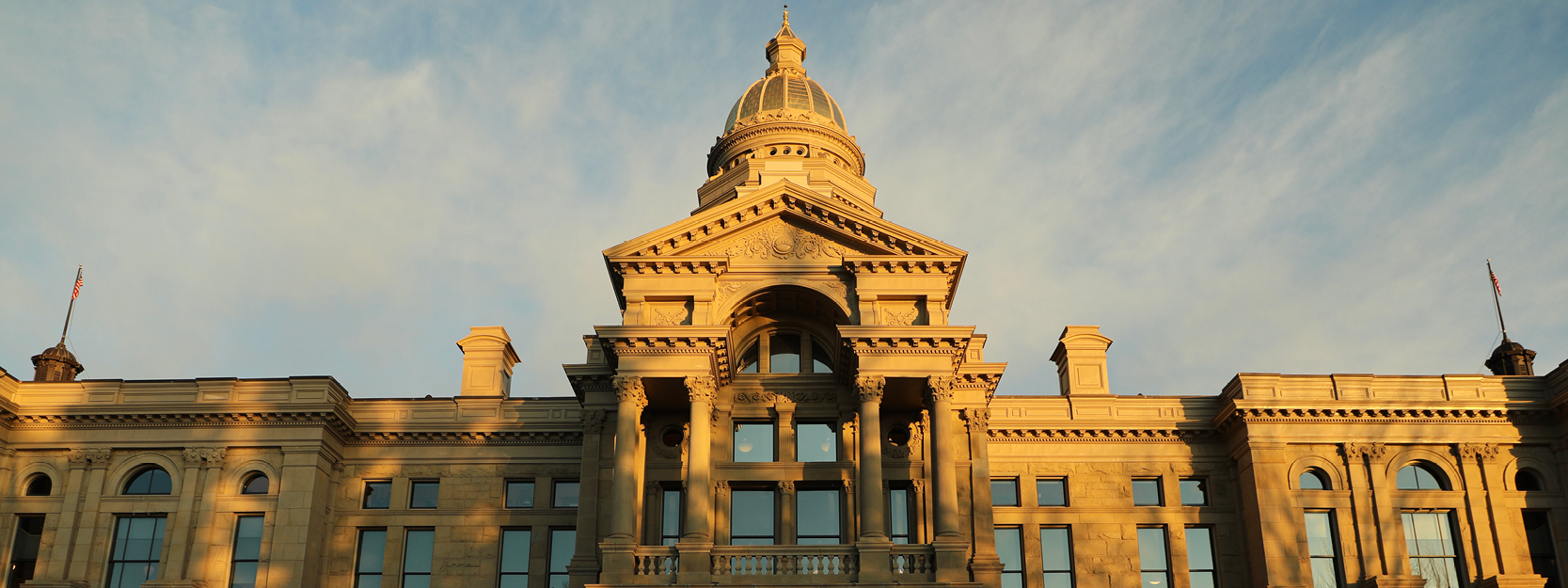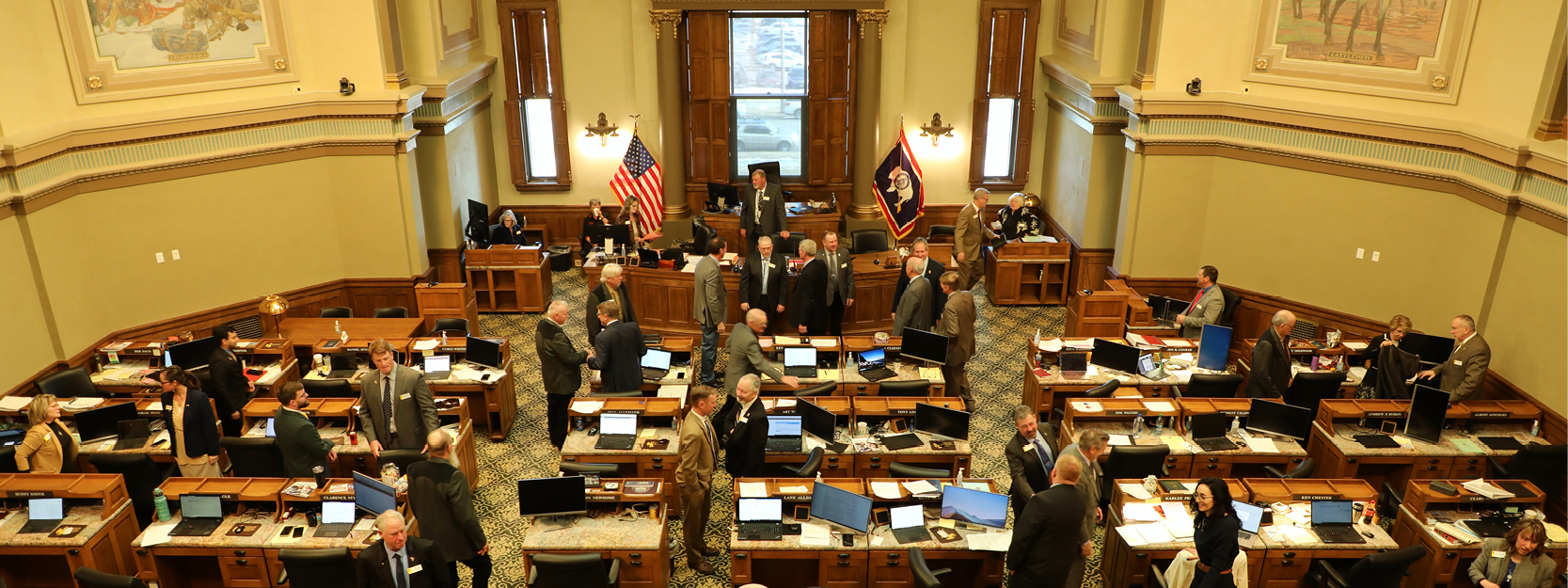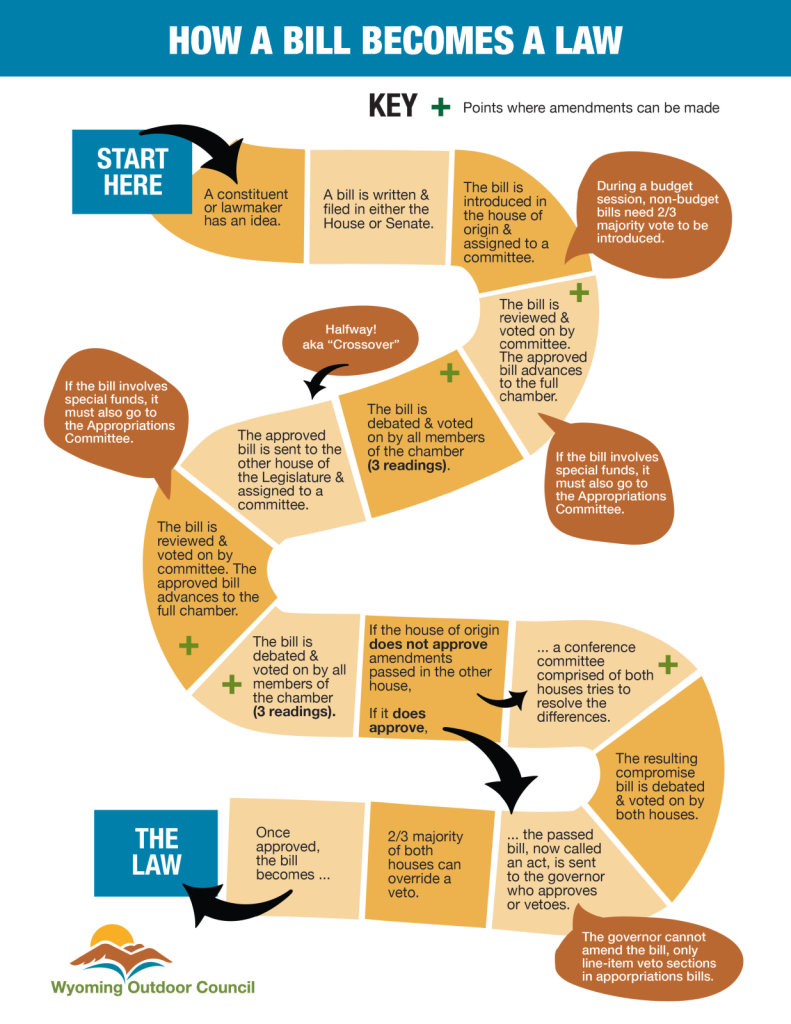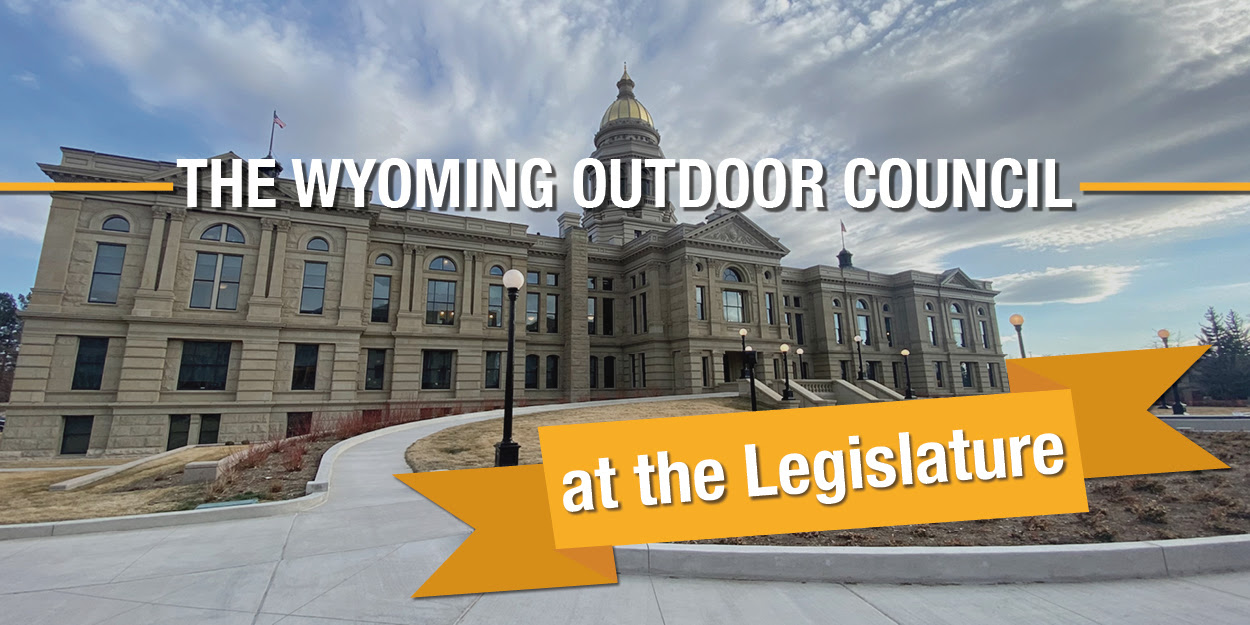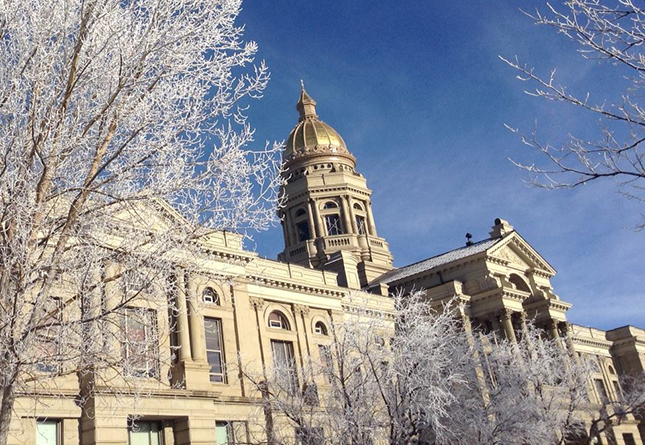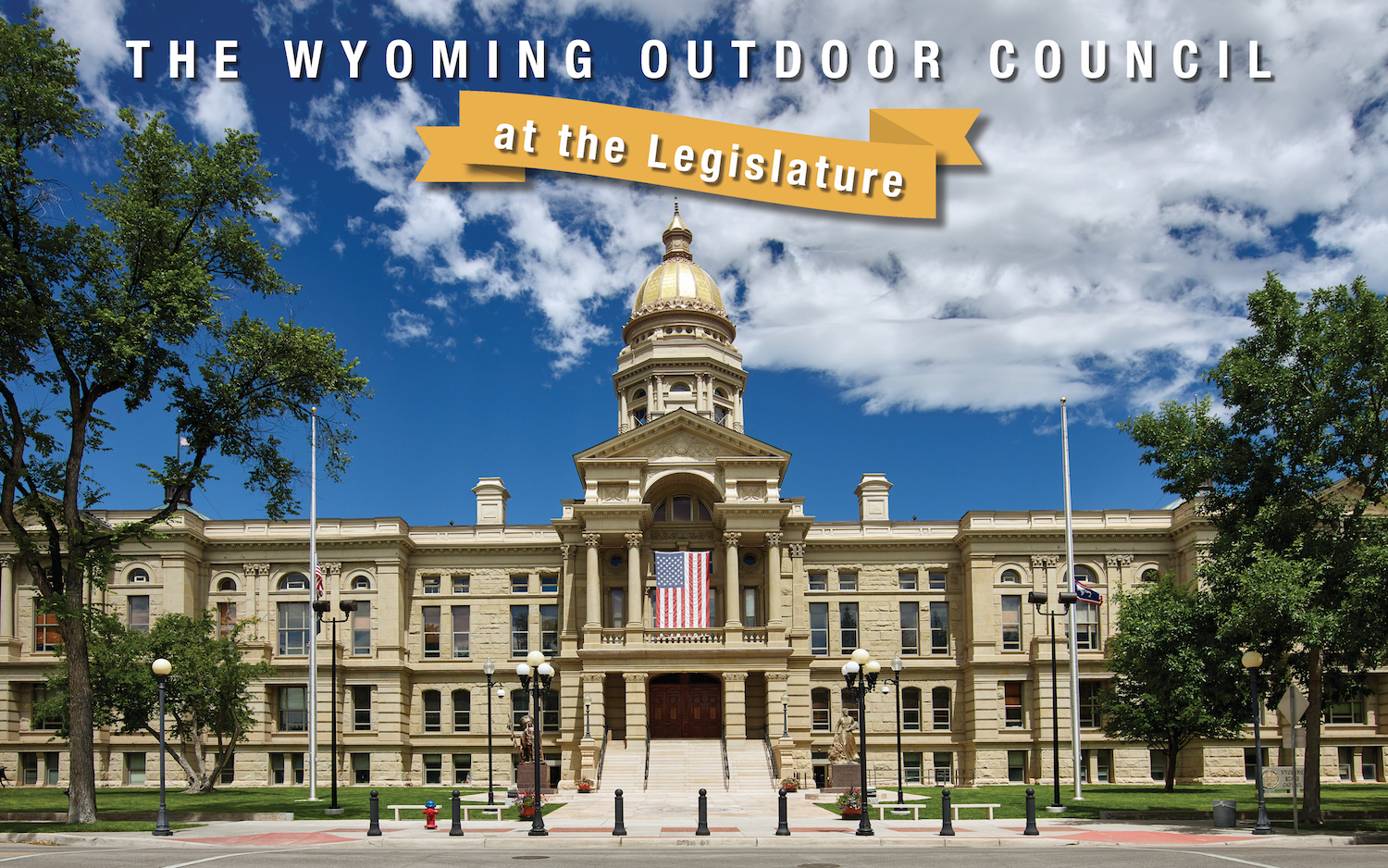Demystifying Wyoming’s Budget: All Your Questions, Answered
One week from today, the 93 citizen lawmakers of the Wyoming State Legislature will convene to kick off the 2024 legislative session — a budget session. Before that, though, let’s do a quick gut check: What happens when you hear the words, “It’s time to talk about the state’s budget?”
If you’re as engrossed in state fiscal policy as I am, maybe these words cause your ears to perk up … but if you’re not, it’s likely your eyes are already glazing over and you may be asking yourself why the state’s budget should matter to you at all.
I completely get it: Discussions about the budget are often obscure, inaccessible, and confusing. But it doesn’t have to be that way. Moreover, it shouldn’t be that way — because the budget lawmakers eventually approve in the next several weeks will impact you, me, and everyone else in Wyoming.
So, let’s demystify the state’s budget and discuss what in the world all of this has to do with conservation.
(If after reading the budget still feels convoluted and complex — or you just want to know more — there’s a spot below where you can ask us your burning questions!)
What does Wyoming spend its money on?
Wyoming budgets its revenue for all the state institutions and services we rely on: schools, state agencies, family services, roads, corrections, and local governments — to name a few!
Great — but why does the budget matter for conservation?
Broadly, the budget distributes (or, in some cases, denies) funding to state agencies that influence the conservation and protection of Wyoming’s lands, air, wildlife, waterways, and quality of life. Numerous agencies fall into this category, including the Wyoming Energy Authority and the Department of Environmental Quality.
Where does the money for Wyoming’s budget come from?
Wyoming’s major revenue sources are sales and use taxes, severance taxes (imposed on the extraction of natural resources), federal mineral royalties, mineral ad valorem taxes (similar to property taxes, but based on mineral rights), and federal funds. Unlike most states, Wyoming does not fund its operations entirely with tax revenue and federal funds — investment income is also a significant source of funding. Much of the money in these investment funds came from severance tax revenue saved over time.
How do state officials know how much revenue they can spend?
Wyoming can’t spend more than predictions say we will earn in revenue. These predictions are made several times a year by the Consensus Revenue Estimating Group, a group of economics and minerals professionals, academics, and state executives. Wyoming’s revenue is highly dependent on forces outside our state’s control, including the market prices of fossil fuels and state investment income. These and many other external forces can cause dramatic fluctuations in revenue. (For example, unexpectedly high gas prices last winter may have hurt our pocketbooks, but they led to higher state revenue for the year.)
You’ve said that this year’s legislative session is a budget session. What does that mean, and how is it different from a general session?
A budget session is typically 20 days, half the length of a general session. During the budget session, lawmakers are primarily focused on agreeing on a budget to guide the state’s spending for the next biennium, or two-year period. The legislature considers other, non-budget bills during a budget session, too — but to ensure a greater focus on the budget, these other bills require a two-thirds majority vote for introduction, which can be a high bar to pass.
What’s the process to approve the state’s budget during the session?
Before the session, the governor and then the Joint Appropriations Committee (which consists of members of both the House and Senate) put in a lot of work on the budget. When the session begins, the budget bill is introduced in both chambers as identical “mirror” bills, SF001 and HB001. These bills are discussed, voted on, and amended multiple times, after which members from each chamber work out the differences between their respective bills. Then the budget is sent to the governor. The governor can sign it into law, or veto individual sections and then sign it into law. The legislature can override a veto with a two-thirds majority vote.
How can citizens get involved in the budget process?
If you know about a certain provision in the budget (see our highlights below), you can call or email your legislators to let them know what you support or oppose. Because of its length and its many, many components, following the budget bill and its progression through the chambers can be challenging. That’s where the Outdoor Council comes in — we’ll do our best to keep you updated via email on how and when you can reach out to your legislators on conservation topics within the budget.
Do we know what those budget-related conservation topics are going to be?
As of the time of this blog’s publication, this year’s budget bill has not yet been finalized. Still, we already know of several important conservation priorities within it, including:
- Section 20, Department of Environmental Quality – The DEQ (which is responsible for protecting the state’s environment while enabling economic development) requested 14 new positions to support both industry and the environment. Most of these positions are in air quality and water quality divisions. We support the addition of positions to the DEQ — with the EPA’s recent methane reduction rule and other anticipated federal air quality rules in the coming year, the DEQ needs more employees to keep up with demand and to meet federal requirements.
- Section 39, Wyoming Wildlife and Natural Resource Trust – Gov. Mark Gordon requested $20 million to protect wildlife habitat by fighting invasive grasses. We support the governor’s request. Invasive grasses such as cheatgrass pose a significant threat to biologically diverse habitats, agricultural grazing capacity, and our state’s wildlife populations.
- Section 90, Wyoming Energy Authority – The WEA, which advocates for Wyoming’s energy economy and implements its energy strategy, requested five new positions. While we would like to see all of these positions added, we are particularly supportive of the Renewable Resource Manager. As the need to diversify our economy increases, this position will increase the agency’s ability to promote responsible renewable energy growth and proper siting.
- Section 96, State Budget Department – Gov. Gordon proposed $500,000 to continue funding the work of the grant management office, which was created in 2023. This office helps Wyoming’s small and under-resourced communities by assisting them with grant applications for abundant federal funds. We support the governor’s proposal. This funding is especially important in the context of the Inflation Reduction Act and the Joint Infrastructure and Jobs Act, each of which have programs that are available to the state.
- Section 300, Kelly Parcel (and other items) – This catch-all section of the budget will include a statement asking the State Board of Land Commissioners to sell the Kelly Parcel directly to the federal government for $100 million. You may remember hearing from us recently about the proposed sale of Kelly Parcel, a piece of land prized for its irreplaceable wildlife habitat. We strongly support the direct sale of the parcel to the federal government for incorporation into Grand Teton National Park. The requested price tag is over 160% of its appraised value. At this price, the $4 million it would earn annually in income is over 1400 times the $2,800 it currently earns annually from leasing. This additional revenue could significantly contribute to funding our schools.
How can I make my voice heard for non-budget bills during session? And where can I find out how to contact my legislators?
Visit our State Legislature webpage to find a wealth of resources, information about contacting your legislators, and tips and tricks for making your voice heard during the session.
What other questions do you have about the budget or the upcoming session? Share them with us below!
I’ll see you next Monday (the first day of session!) for another Legislative Lowdown.


